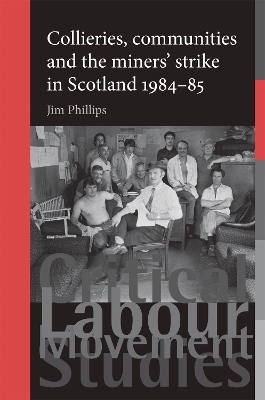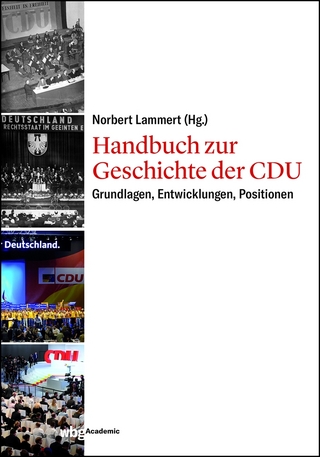
Collieries, Communities and the Miners' Strike in Scotland, 1984–85
Seiten
2014
Manchester University Press (Verlag)
978-0-7190-9672-3 (ISBN)
Manchester University Press (Verlag)
978-0-7190-9672-3 (ISBN)
This book analyses the 1984-5 miners’ strike by focusing on its vital Scottish dimensions, especially the role of workplace politics and community mobilisation. -- .
This book, available at last in paperback, analyses the 1984–85 miners’ strike by focusing on its vital Scottish dimensions, especially the role of workplace politics and community mobilisation. The year-long strike began in Scotland, with workers defending the moral economy of the coalfields, and resisting pit closures and management attacks on trade unionism. The book relates the strike to an analysis of changing coalfield community and industrial structures from the 1960s to the 1980s. It challenges the stereotyped view that the strike began in March 1984 as a confrontation between Arthur Scargill, the miners’ leader, and Margaret Thatcher’s Conservative government. Before this point, in fact, fifty percent of Scottish miners were already on strike or engaged in a significant pit-level dispute with their managers, who were far more confrontational than their counterparts in England and Wales. The book explores the key features of the strike that followed in Scotland: the unusual industrial politics; the strong initial pattern of general solidarity; and then the emergence of varieties of pit-level commitment. -- .
This book, available at last in paperback, analyses the 1984–85 miners’ strike by focusing on its vital Scottish dimensions, especially the role of workplace politics and community mobilisation. The year-long strike began in Scotland, with workers defending the moral economy of the coalfields, and resisting pit closures and management attacks on trade unionism. The book relates the strike to an analysis of changing coalfield community and industrial structures from the 1960s to the 1980s. It challenges the stereotyped view that the strike began in March 1984 as a confrontation between Arthur Scargill, the miners’ leader, and Margaret Thatcher’s Conservative government. Before this point, in fact, fifty percent of Scottish miners were already on strike or engaged in a significant pit-level dispute with their managers, who were far more confrontational than their counterparts in England and Wales. The book explores the key features of the strike that followed in Scotland: the unusual industrial politics; the strong initial pattern of general solidarity; and then the emergence of varieties of pit-level commitment. -- .
Jim Phillips is Senior Lecturer in Economic and Social History at the University of Glasgow -- .
Introduction: Rethinking the 1984–5 miners’ strike
Part I: Origins and outbreak
1. Collieries, communities and coalfield politics
2. Closures and workplace conflict: the origins of the strike
Part II: The strike
3. The Scottish industrial politics of the strike
4. Communities and colliery-level commitment
5. Ending and aftermath
6. Legacy and conclusion
Bibliography
Index -- .
| Erscheint lt. Verlag | 30.9.2014 |
|---|---|
| Reihe/Serie | Critical Labour Movement Studies |
| Verlagsort | Manchester |
| Sprache | englisch |
| Maße | 156 x 234 mm |
| Gewicht | 304 g |
| Themenwelt | Sozialwissenschaften ► Politik / Verwaltung |
| Technik ► Bergbau | |
| Wirtschaft | |
| ISBN-10 | 0-7190-9672-3 / 0719096723 |
| ISBN-13 | 978-0-7190-9672-3 / 9780719096723 |
| Zustand | Neuware |
| Haben Sie eine Frage zum Produkt? |
Mehr entdecken
aus dem Bereich
aus dem Bereich
Grundlagen, Entwicklungen, Positionen
Buch | Hardcover (2023)
wbg Academic (Verlag)
40,00 €


